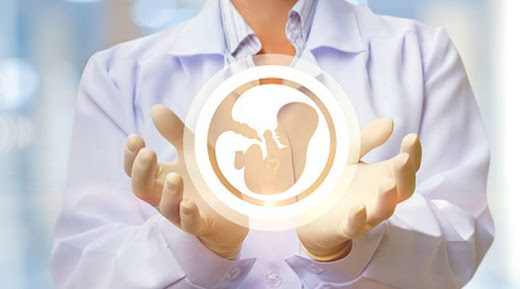Achieving pregnancy is a huge IVF moment! It is the final step of successful infertility treatment. You will now have to do everything possible to ensure a healthy baby. These will include a proper care plan with healthy meals, supplements, regular check-ups and lifestyle modifications. The percentage of live births per egg retrieval is 54.5% in women below 35. This figure shows that it is not a tough job to take a pregnancy to term. It is exactly similar to natural conception at this point. You will have to follow the gynaecologist’s instructions for the next nine months till the baby arrives.
It can reduce the risk of complications like a low birth weight or a premature infant. There are fewer chances of a miscarriage too. Taking proper measures can keep the mother and child safe. Here’s how to look after an IVF pregnancy at home.
1. Consider Healthy Eating
Eat small 5-6 well-balanced meals every day. This can help avoid morning sickness. Pick foods high in folates like fortified cereals, lentils, asparagus, wheat germ and oranges. It can help develop the child’s spinal cord. Babies to be born from IVF have slight risks of birth defects. This is where folic acid is also helpful to prevent the conditions. Add loads of lean meat, eggs and dairy products, beans, tofu and peanut butter as well. Lots of fresh fruits and leafy green vegetables are also recommended.
Take supplements like calcium, potassium and iron. Fish is also suggested to improve the baby’s motor skills and IQ. Cut down on caffeine and quit tobacco and alcohol altogether. Don’t forget to keep yourself hydrated.
2. Be Mindful of Warning Signs
It is crucial to be cautious with pregnancies to ensure quick help. Do not ignore severe headache, persistent abdominal pain, changes in eyesight, dizziness, burning urge to urinate, itching all over the body and discomforts under the ribcage. Vaginal bleeding or spotting is fine in the initial stages but not in the second trimester onward. You must also see the doctor in case you feel restricted foetal movement.
Frequent chills and fevers are also big causes of concern. It can mean bacterial infections and complications. Instead of waiting for the signs to pass, visit the nearest infertility hospital in Hyderabad or whichever city you reside in.
3. Mild Exercise
Kegels is the best when it comes to pregnancy. It helps to strengthen the pelvic floor. This can strengthen the uterus, bowels and bladder. You can also expect a smooth delivery and prevent birth complications. Learn the proper techniques and practise while sitting in the car, at your work desk or even outdoors while standing behind a queue. Yoga, deep breathing and meditation are also great to keep your body and mind steady. Do light household chores and walk daily for 10-20 minutes to improve your general fitness.
You cannot afford to lose this golden opportunity of having a baby. So, take good care of this IVF pregnancy through the above-mentioned steps for the best outcome.

